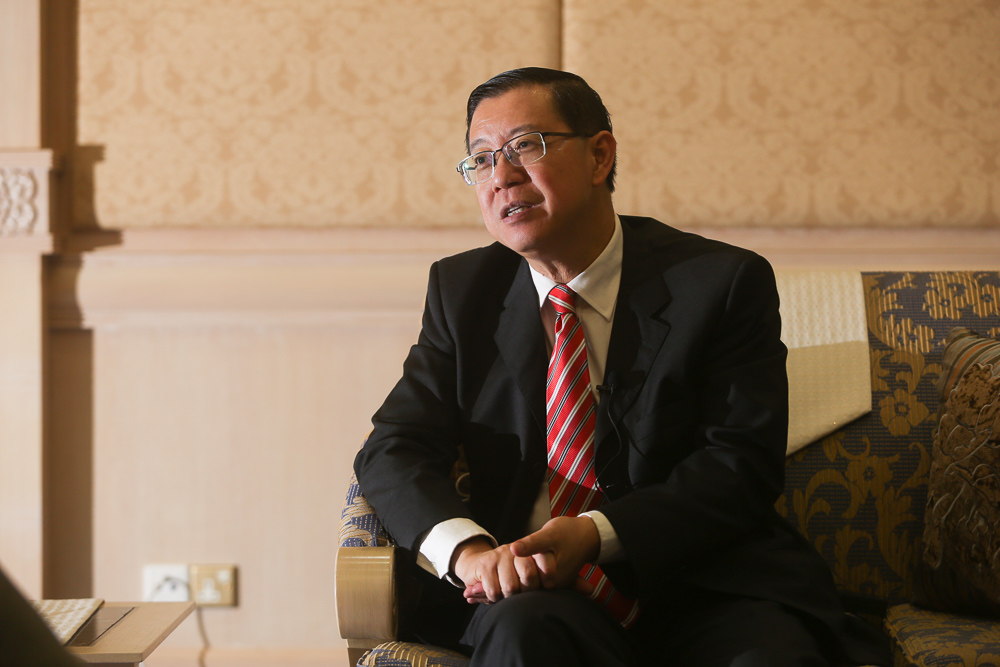KUALA LUMPUR, June 14 — Malaysia will bank on private sector investment to spur economic growth as the government tightens its purse strings to pay liabilities totaling over US$250 billion (RM597.3 billion), Finance Minister Lim Guan Eng told Reuters in an interview today.
The country’s new government is seeking to diversify its revenue base, Lim said, having scrapped an unpopular broad-based consumption tax and reintroduced fuel subsidies to make good on promises to voters following an election last month.
“There is definitely a funding gap. But we can fill the funding gap,” Lim said. “We don’t spend more than what we have, don’t commit ourselves to fancy projects that we cannot afford, and, of course, (by) cutting down waste.”
The fiscal deficit target of 2.8 per cent of gross domestic product could be achieved this year and beyond, but reducing it further would be a challenge as it could hurt low income households, he added.
“We at least try to maintain at 2.8 per cent,” Lim said.
Malaysia’s fiscal strength has become a major concern following the unexpected defeat of former prime minister Datuk Seri Najib Razak in an election that ended his near-10 year rule and brought down the curtain on six decades of rule by a multi-ethnic coalition led by the United Malays National Organisation.
The new government led by 92-year-old Tun Dr Mahathir Mohamad, who came out of retirement to join the opposition against his former protege Najib, had promised to lower living costs, scrap the unpopular consumption tax and crackdown on corruption.
Some analysts have speculated the government could list a small portion of its stake in Petronas, which is the sole manager of Malaysia’s oil and gas reserves, to generate revenue.
Lim said the Cabinet has decided to remove all political appointees at state-owned or state-linked companies, but there were no plans to sell stakes in them at present, though he didn’t rule out the possibility in the future.
“We are just seeking to detoxify... It doesn’t make sense to sell when your assets are toxic,” Lim said.
Lim has said previously that the government could get more dividends from state energy firm Petronas and sovereign fund Khazanah, and cut spending by RM10 billion to achieve its deficit target this year.
The impact on economic growth from reduced government spending would be offset by stronger private sector investment and higher consumer spending expected after GST was scrapped this month, he said.
The government has said the removal of GST would create a RM20 billion revenue shortfall this year, and about RM40 billion next year.
The reintroduction of a sales and service tax and spending cuts may be insufficient to maintain fiscal strength from 2019, economists have warned.
Lim said Malaysia would need to find other sources of revenue from next year, but did not elaborate, though he added that the recent rise in global energy prices will give gas-rich Malaysia some breathing space.
Foreign investors have been retreating from Malaysian markets partly due to uncertainty over the new government’s policies.
The new government has said Malaysia’s debt and liabilities total over RM1 trillion, accusing Najib’s government of lying about the country’s finances and state fund 1Malaysia Development Berhad (1MDB).
It is reviewing various projects signed during Najib’s time, and has decided to axe a high-speed rail link between the capital, Kuala Lumpur, and neighbouring Singapore for now.
Lim said today that Malaysia was renegotiating to bring down cost of a US$14 billion domestic rail project being built by a Chinese company. — Bernama



















